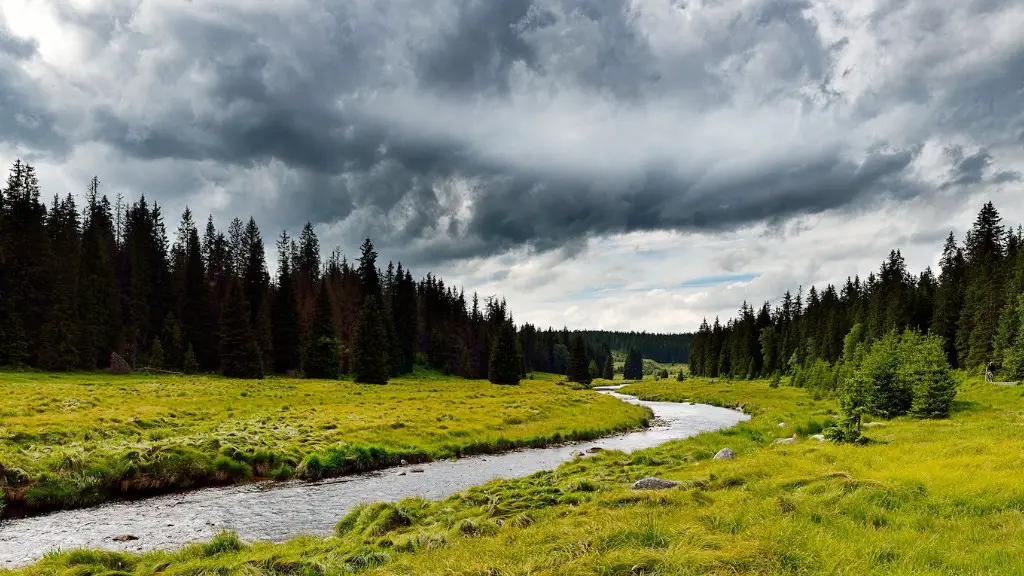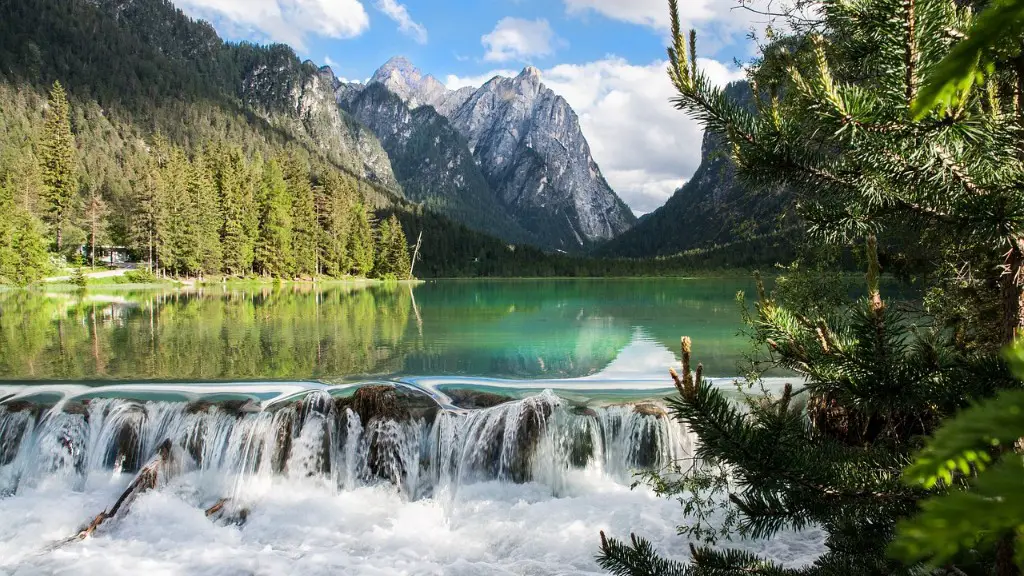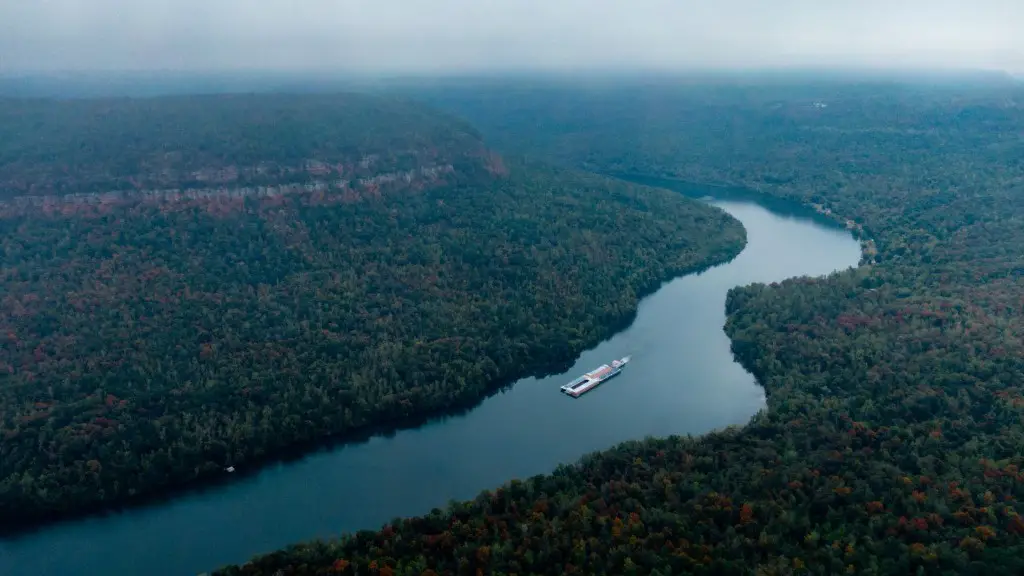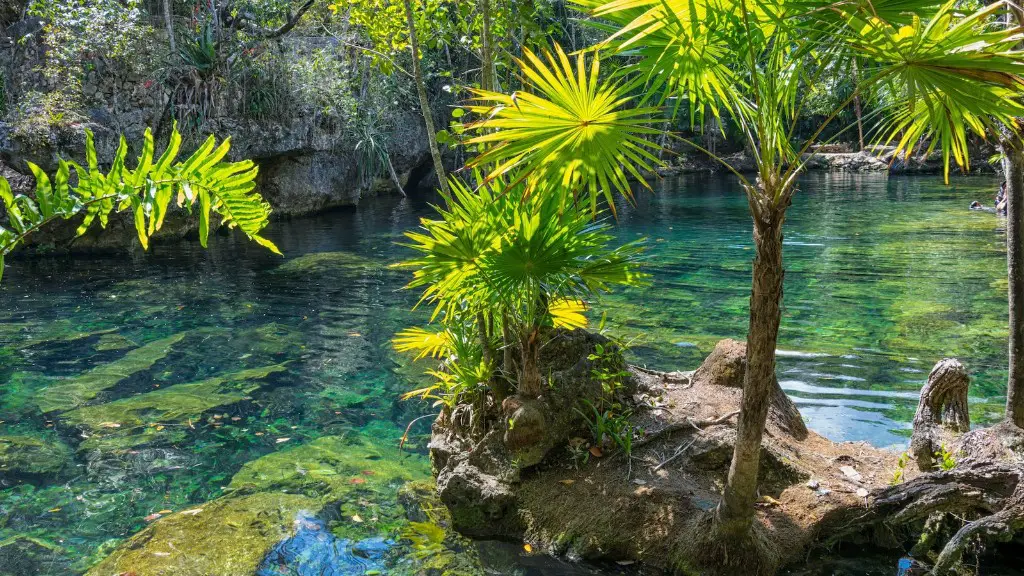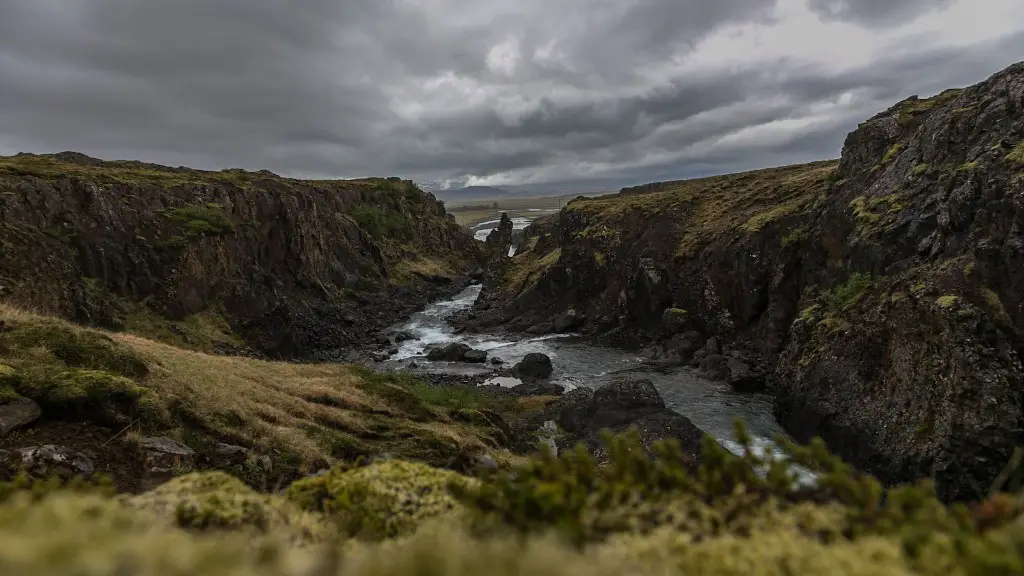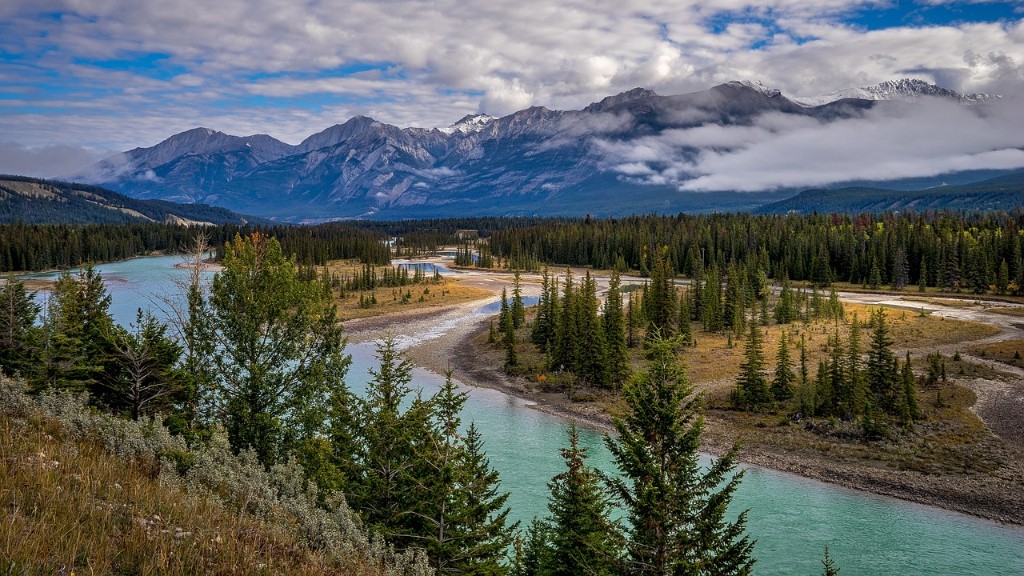The Nile River is one of the oldest and most storied rivers in the world and its significance in the cultural, political, and economic history of Egypt is unmatched. From the time of the Pharaohs, the river has been a major source of transportation, irrigation, and food production, as well as a source of political and social unity. Despite the advance of modern technology, the Nile still remains a vital artery of life in Egypt today.
The river is often referred to as ‘the lifeline of Egypt’ due to the vital role it plays in the country’s agriculture and transportation. It is considered particularly important because of the country’s dependence on the Nile Delta and the waters flowing through the Nile Valley. In fact, it is estimated that around 97 percent of Egypt’s total water supply comes from this river. The people of Egypt also depend on it for irrigation, as well as providing access to the rich seafood that comes from the delta and the shelf.
The Nile River is the longest river in the world and it is located in the northeast corner of Africa. It stretches more than 4,000 miles, from its source in the Ethiopian highlands, through Sudan and Egypt, and eventually into the Mediterranean Sea. The river has been carving out a pathway for more than 5,000 years and has become a major resource for the nations that lie alongside it.
The Egyptians began to rely heavily on the Nile River after it was harnessed and regulated by Pharaohs. It has provided the country with a reliable source of water and arable land in a dry land, enabling the development of fruitful agricultural areas. This allowed the ancient Egyptians to develop a prosperous and complex culture, as well as a way of life that sustains them to this day.
The Nile River has also been a major route for freight and travel for centuries. It was used often as a trading route between Egypt and Nubia, as well as a means of transporting goods from the interior of the region to the Nile Delta. In recent years, the expanding population in the region has placed increased pressure on the river’s resources, leading to overfishing and pollution.
The future of the Nile is of great concern to many, especially in Egypt. A booming population and the increasing need for energy are two major concerns that Egypt must address in order to balance the needs of its people with the preservation of its important resource. Despite the dangers, the Egyptian government has implemented various measures in order to protect and conserve the Nile’s resources.
The Role of Egypt with Respect to the Nile
Egypt is one of the three nations that borders the Nile River, and its people rely heavily on the river for food and water. The Egyptian people have a long history of using the natural resources of the Nile to their advantage, and the river has been a major contributing factor to the country’s wealth and power over many generations. This dependence on the Nile is also closely tied to the history and culture of Egypt, and has a great influence over many aspects of the nation’s politics and lifestyle.
The Nile River is controlled through the Nile Waters Agreement, which defines how much and when countries along the river can use its waters. This agreement is in place to ensure that all the countries along the Nile have equal access to the world’s longest river. Egypt’s share of the Nile is 55.5 billion cubic meters (bcm). This is the largest share of the Nile that any nation has, and it is a vital resource that Egypt must manage responsibly.
Egypt is a powerful force along the Nile and it is the duty of the country to use its power and resources to protect, conserve, and improve the use of the river. To do this, the Egyptian government has been working to strengthen the country’s ability to control the water and irrigation systems and to identify and monitor any potential riparian conflicts. It also works closely with other nations along the river to ensure that all the nations can access and share the resources without doing harm to the environment.
The future of the Nile River depends heavily on the actions of the countries along it and Egypt is at the helm of this effort. It is up to the government to enact legislation and policies that can protect and conserve the Nile, ensuring that the nations of the Nile have access to clean and sustainable water for generations to come.
Environmental Protection of the Nile
The Nile is a valuable source of water and food for many countries, but its resources are limited and they are becoming increasingly threatened by overuse and pollution. To this end, the Egyptian government has implemented various measures in order to protect and conserve the water of the Nile and its resources. These measures include legislation to reduce water extraction and promote sustainable water-use. Furthermore, the government is working to increase public awareness of the river’s importance and how to use it sustainably and reduce pollution.
The Egyptian government has also taken steps to minimize water-born diseases and increase irrigation efficiency. Large investment efforts in water management have been made and modern technology has been used in order to monitor and regulate the flow of the river. These efforts have been successful in reducing the impact of large floods and managing the water resources of the Nile.
The Egyptian government also works with other nations along the Nile to discuss conservation and protection efforts. The Nile Basin Initiative is an example of such a program, as it brings together all the countries in the Nile Basin and promotes dialogue and cooperation on trans-boundary water resources. Issues such as environmental protection, food production, and the regulation of water resources are discussed in order to come up with policies that can benefit all of the countries.
The Nile is one of the world’s most important rivers and it is up to the nations along it to protect and conserve its resources. Egypt is leading the effort towards conservation and protection of the river and it is working hard to ensure that it can continue to be a resource for agriculture, food, and transportation. This effort is vital for the future of Egypt and its people.
Impact of Global Warming on the Nile
Global warming has had an impact on the environment, and this is especially evident with the Nile River. It is thought that due to climate change, the severity and frequency of floods and droughts in the region will increase. This could lead to severe water shortages in the region, which could have serious implications for the health and well-being of the people of the Nile Basin.
Another concern is the effect of global warming on the Nile Delta. The Nile Delta is a sensitive and important ecosystem that supports large populations of people and animals. Global warming has already had an impact in the region, as sea levels have risen and the Delta has become increasingly fragile and prone to erosion. The increased temperatures also adversely affect the fish and wildlife in the region.
The increasing temperatures have also affected the ability of the Nile to provide a reliable source of water for the people of the region. Due to the changing weather patterns and increases in temperatures, the river is expected to become increasingly unreliable and not provide enough water for the people of the region to survive. This could have devastating consequences for the people of the region.
The effects of global warming are felt all over the world, but they are especially evident in countries like Egypt that are so heavily reliant on the resources of the Nile. The government of Egypt is working hard to mitigate the effects of climate change and to adapt to the changing environment. This includes improving water management and infrastructure, as well as working with other countries in the region to reduce emissions and conserve natural resources.
Conservation of the Nile
The Nile is a precious natural resource and it is vital that all nations along the Nile work together to protect and conserve it. To this end, the countries of the Nile have worked together to establish numerous conservation initiatives. These initiatives aim to improve water management, encourage sustainable practices, and preserve the rich biodiversity of the river.
The governments of the Nile have also worked together to establish procedures and regulations to ensure that water resources are managed efficiently and responsibly. This includes the sharing of water resources between countries and the development of irrigation systems that reduce water consumption and reduce pollution. Furthermore, water quality monitoring and environmental protection programs are in place to ensure that the resources are preserved and used sustainably.
The Egyptian government is also working with local and international organizations to raise awareness and promote sustainable management of the river’s resources. This includes educating the public on the importance of conservation and the dangers of over exploitation. The government is also providing financial assistance to farmers, fishermen, and other individuals who are dependent on the river.
The conservation of the Nile is essential to the prosperity of the nations that rely on it and the long-term stability of the region. Through international cooperation and local initiatives, the governments of the Nile nations are working hard to protect and conserve the important resources of the Nile.
Economic Benefits of the Nile
The Nile River has provided a number of economic benefits to the countries of the Nile Basin, most notably in the form of food production and transportation. The river has enabled the rich agricultural lands of Egypt and other nations to be exploited for food production and it has provided a convenient and reliable means for transporting goods and people throughout the region.
The Nile is also a major source of hydroelectric power in the region, providing electricity to millions of people. The construction of dams and other infrastructure along the river has also enriched the region’s economy, as it has allowed for irrigation systems, flood protection, and transportation networks to be built.
The economic benefits of the Nile are not just limited to the countries of the region, but to the world as a whole. The resources and services provided by the river have enabled many countries to become more independent and finance their own economic growth. Furthermore, the river has provided a reliable source of food and transportation that has enabled countries in other parts of the world to benefit from their trade with the Nile nations.
The economic benefits of the Nile are invaluable and they can be maximized by developing sustainable practices and policies for the use of the river. The governments of the Nile nations must work together to ensure that the region can continue to reap the benefits of the Nile for many generations to come.
Conclusion
The Nile is one of the oldest and most storied rivers in the world, and its significance in the cultural, political, and economic history of Egypt is unmatched. For centuries, it has been at the center of life for the nations that lie along it and, even today, it is a vital resource for the region. The countries of the Nile have worked together to protect and conserve the resources of the river, and they are also working to promote its economic benefits. The future of the Nile is dependent on the actions of the nations along it and it is up to them to ensure that its resources are used responsibly and sustainably.
